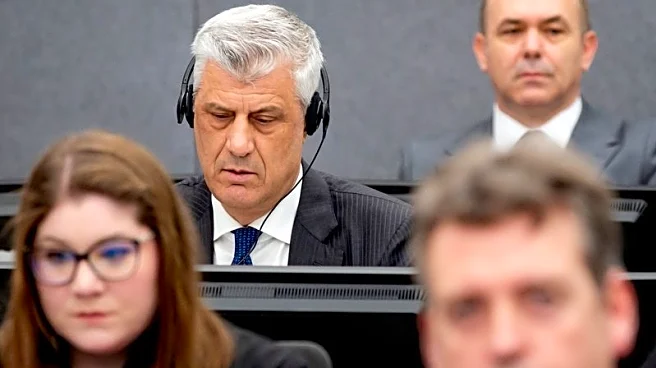What is the story about?
What's Happening?
President Trump's administration has imposed tariffs on Indian shrimp exports, significantly affecting the industry. Initially set at 25%, the tariffs were increased to 50% in August, targeting sectors that provide jobs in India. This move was in response to India's purchase of Russian oil. The eastern state of Andhra Pradesh, heavily reliant on shrimp exports to the U.S., is experiencing severe economic repercussions. Many workers in shrimp processing plants have lost their jobs, and the industry is struggling to adapt to the new tariffs. The U.N.'s Food and Agriculture Organization reported a drastic drop in farm sales due to reduced demand from the U.S.
Why It's Important?
The tariffs imposed by President Trump are likely to have significant economic impacts on both India and the U.S. For India, the shrimp industry employs over a million people, and the tariffs threaten their livelihoods. The reduction in exports could lead to increased unemployment and economic instability in regions dependent on shrimp farming. For the U.S., the tariffs may lead to higher prices for shrimp, affecting consumer choices and potentially leading to a shift in sourcing from other countries. The broader implications include strained trade relations between the U.S. and India, which could affect other sectors and future trade negotiations.
What's Next?
Indian exporters are seeking to diversify their markets, looking towards Europe and Asia to compensate for the loss of U.S. demand. However, this transition may take time, and the immediate economic impact on workers and farmers remains a concern. Trade talks between Washington and New Delhi continue, but even if tariffs are reduced, the damage to the industry may be lasting. The situation calls for strategic planning and support from the Indian government to mitigate the effects and explore new market opportunities.
Beyond the Headlines
The tariffs highlight the complexities of international trade and the potential for political decisions to have far-reaching economic consequences. The situation underscores the need for ethical considerations in trade policies, particularly regarding industries that employ vulnerable populations. The use of tariffs as a political tool raises questions about their effectiveness and the potential for unintended consequences.

















